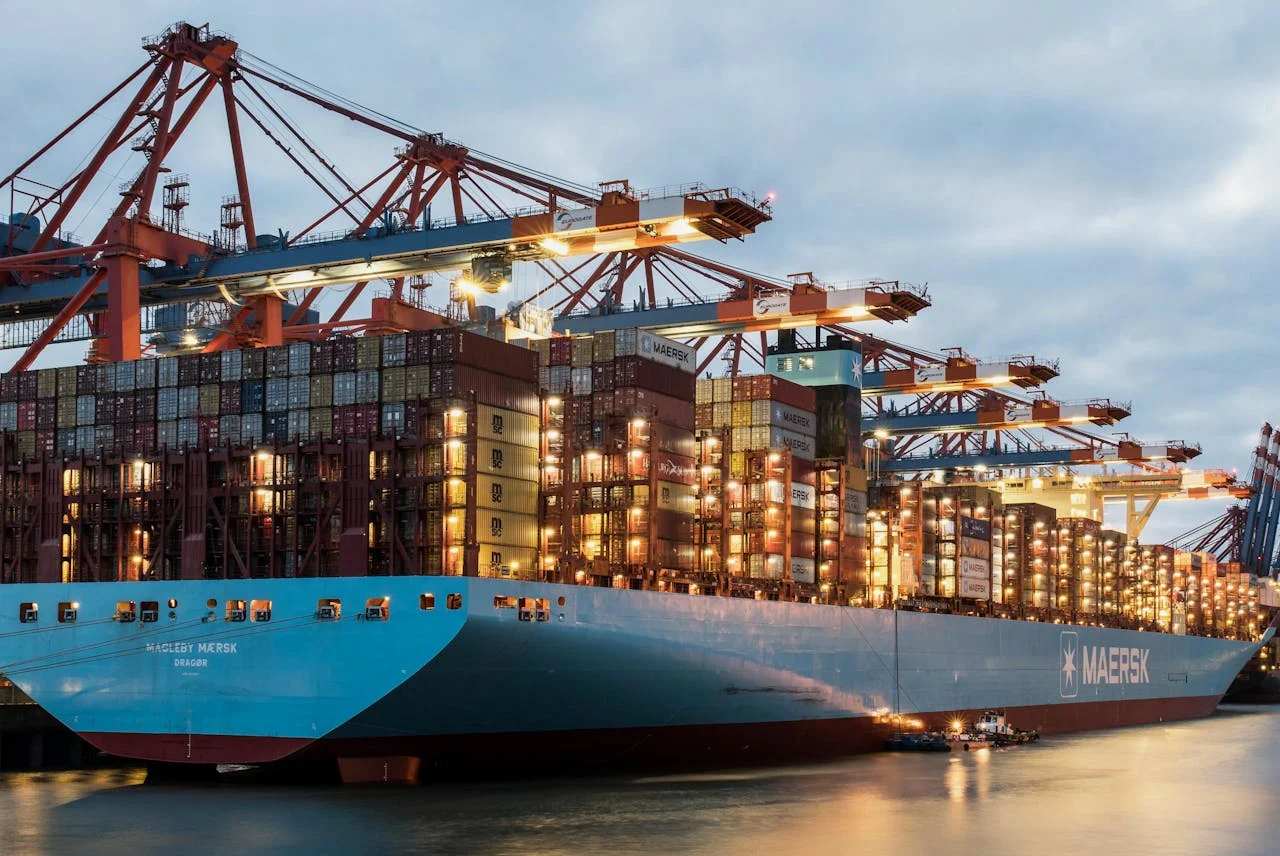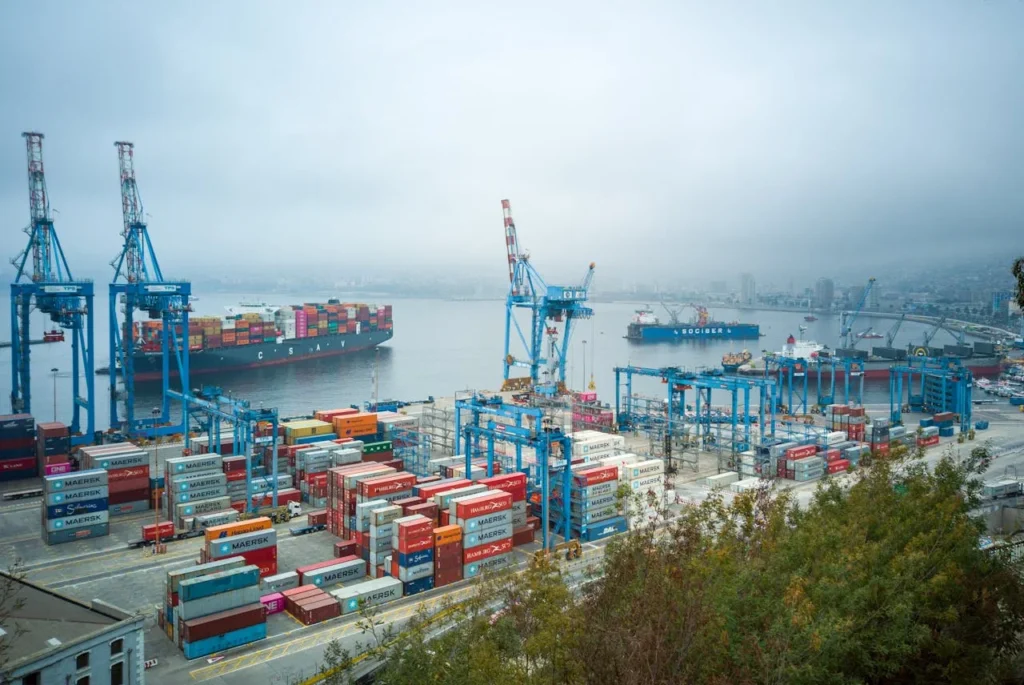
Maersk Set to Launch Its New Ocean Network
On February 1, 2024, two global shipping giants, Maersk A/S (Maersk), a subsidiary of A.P. Moller – Maersk, and Hapag-Lloyd AG (Hapag-Lloyd), officially launched their groundbreaking operational collaboration, Gemini Cooperation. This strategic partnership is designed to enhance supply chain efficiency, improve schedule reliability, and create a robust, flexible, and interconnected ocean network that will set new industry benchmarks.
Introducing the Gemini Cooperation: A New Era for Global Trade
The Gemini Cooperation marks a significant milestone in the shipping industry, bringing together the expertise and resources of two of the world’s largest container shipping companies. Maersk and Hapag-Lloyd aim to achieve an industry-leading schedule reliability rate of over 90 percent once the partnership is fully implemented. This level of predictability and consistency is expected to significantly benefit global shippers and customers by minimizing delays and improving overall supply chain performance.
The launch of this initiative comes at a crucial time when the global shipping industry is facing challenges such as port congestion, supply chain disruptions, and fluctuating demand patterns. By joining forces, Maersk and Hapag-Lloyd are positioning themselves as leaders in providing more efficient, agile, and customer-focused shipping solutions.
A Fleet of 340 Vessels to Power the New Network
The transition into the Gemini Cooperation network will involve the phased integration of approximately 340 vessels. These vessels will progressively align with the new schedules, ensuring a seamless shift from existing agreements with other carriers. The first set of sailings under the new network took place on February 1, marking the beginning of a transition period that is expected to last until late May.
During this period, vessels will gradually be incorporated into the Gemini network while simultaneously exiting previous arrangements that Maersk and Hapag-Lloyd had with other partners. By June 2024, the network will be fully operational, with all vessels adhering to the newly established Gemini schedules.
Comprehensive Coverage Across Key Trade Lanes
The Gemini Cooperation will provide extensive coverage across major East/West trade routes, ensuring seamless connectivity between some of the world’s busiest ports. The network is structured around 29 core ocean mainliner services that will facilitate long-haul international trade. These mainline services will be complemented by 28 agile, intraregional shuttle services, creating a well-integrated system that enhances cargo flow efficiency across global supply chains.
By focusing on East/West trade lanes, Maersk and Hapag-Lloyd aim to strengthen transpacific, transatlantic, and Asia-Europe trade corridors. These routes are essential for global commerce, handling vast volumes of containerized goods that support industries ranging from retail and manufacturing to automotive and technology.

Enhancing Supply Chain Resilience and Sustainability
One of the core objectives of the Gemini Cooperation is to improve supply chain resilience. By optimizing vessel deployment and route planning, Maersk and Hapag-Lloyd seek to minimize disruptions caused by unforeseen factors such as extreme weather events, geopolitical tensions, and port congestion.
In addition to operational efficiency, the Gemini Cooperation is aligned with sustainability goals that prioritize reducing the environmental impact of shipping activities. Both Maersk and Hapag-Lloyd have been at the forefront of sustainability initiatives, investing in cleaner fuel alternatives, energy-efficient vessel designs, and advanced digital technologies to reduce carbon emissions.
By leveraging shared resources and expertise, the collaboration is expected to accelerate progress toward achieving carbon neutrality in the shipping industry. Improved vessel utilization, optimized routing, and enhanced port coordination will contribute to lower emissions per container moved, aligning with global efforts to promote greener supply chain practices.
The Strategic Rationale Behind the Partnership
The formation of the Gemini Cooperation is a strategic response to the evolving dynamics of the global shipping industry. As businesses increasingly demand more reliable, efficient, and sustainable shipping solutions, traditional alliances and operational structures are being redefined.
For Maersk and Hapag-Lloyd, this collaboration presents an opportunity to create a differentiated service offering that sets them apart from competitors. By jointly managing a dedicated fleet and sharing network infrastructure, both companies can achieve greater economies of scale, reduce operational redundancies, and offer customers a more seamless shipping experience.
Additionally, the partnership enhances Maersk and Hapag-Lloyd’s ability to navigate regulatory changes and market fluctuations. With global trade policies continuously evolving, a well-integrated and adaptable network ensures compliance with emerging regulations while maintaining service quality and cost efficiency.
Customer Benefits: What the Gemini Cooperation Means for Shippers
The launch of the Gemini Cooperation is expected to deliver multiple benefits to global shippers and customers, including:
- Higher Schedule Reliability – With a targeted schedule reliability rate exceeding 90 percent, customers can expect more predictable transit times, reducing delays and uncertainties in cargo delivery.
- Improved Service Flexibility – The combination of mainliner and shuttle services allows for more adaptable routing options, ensuring faster and more efficient cargo movement.
- Enhanced Network Coverage – The extensive reach of the Gemini network facilitates smoother trade flows across key global markets, offering shippers greater connectivity and route optimization.
- Sustainability Gains – Reduced fuel consumption, optimized vessel operations, and sustainable shipping practices contribute to lower carbon emissions, aligning with corporate sustainability goals and regulatory requirements.
- Seamless Transition – The phased implementation strategy ensures minimal disruption to existing shipping operations, enabling businesses to plan logistics with confidence.
A New Blueprint for Global Shipping Alliances
The Gemini Cooperation is poised to redefine the future of ocean shipping alliances, setting a new industry standard for efficiency and reliability. As the partnership fully integrates throughout 2024, stakeholders across the global supply chain will closely monitor its performance and long-term impact.
Beyond the immediate benefits of schedule reliability and operational efficiency, the success of this collaboration could inspire similar partnerships in the industry. Shipping lines that seek to enhance service quality and sustainability may look to the Gemini Cooperation as a model for cooperative ventures that go beyond traditional vessel-sharing agreements.
Looking ahead, Maersk and Hapag-Lloyd will continue to explore avenues for innovation, digitalization, and customer-centric solutions to further strengthen their market position. As trade volumes continue to grow and shipping demands evolve, the adaptability and forward-thinking approach of the Gemini Cooperation will be crucial in shaping the future of global logistics.
The launch of the Gemini Cooperation between Maersk and Hapag-Lloyd represents a transformative moment for the maritime industry. By establishing a highly reliable and interconnected ocean network, this collaboration addresses key challenges faced by global shippers while advancing sustainability goals. As the phased transition progresses, businesses worldwide stand to benefit from improved logistics efficiency, lower environmental impact, and enhanced supply chain resilience. The Gemini Cooperation is not just a partnership—it is a bold step toward the future of global shipping.

